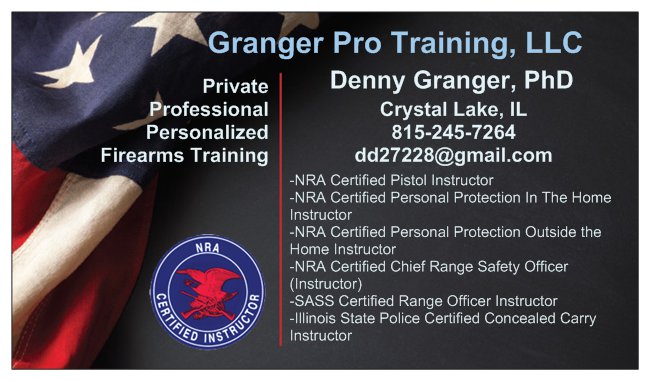Howdy, Stranger!
It looks like you're new here. If you want to get involved, click one of these buttons!
Quick Links


Check out the GGP Sponsors!








Categories


Check out the GGP Sponsors!








That's a wrap! Thanks for a great season. See you all next year!
We should be shooting 2nd Saturday and 4th Sunday again next year.
Final schedule to be finalized in February.
We should be shooting 2nd Saturday and 4th Sunday again next year.
Final schedule to be finalized in February.
Appellate Courts Weigh In on Right to Carry Gun
 dd
Gnome, gnome on the range!
dd
Gnome, gnome on the range!
 <br />
<br />[font=Arial, Helvetica, sans-serif]
[size="+0"]Appellate Courts Weigh In on Right to Carry Gun[/size][/font]
[font=Arial, Helvetica, sans-serif]<br />The US Supreme Court's decisions in District of Columbia v. Heller and McDonald v. City of Chicago established that individuals have an enforceable Second Amendment right to possess firearms — including handguns — for self-defense, and that this right is protected against infringement by states and municipalities as well as the federal government. <br />
<br />
The facts of Heller involved possession of a handgun within the home. Does the right to keep and bear arms extend outside the home? To many, merely asking that question seems preposterous. When the Second Amendment was adopted, the founding generation had just fought a war of independence using their own weapons, and it was fought not in their parlors but up and down a continent. Today, the need for a firearm for self-defense is as likely to arise on city streets as it is in our bedrooms. <br />
<br />
Post-Heller, however, many state and federal courts have been gingerly in recognizing the constitutional right to bear arms, either openly or concealed, outside the home. Some, such as the Maryland Court of Appeals, have flatly stated that they will not recognize that the right applies outside the home until the Supreme Court says that it does. Now, the stage is set for this issue to be resolved, possibly by the Supreme Court, but certainly by some of the US appellate courts. The US Courts of Appeals for the Second and the Seventh Circuits recently have decided cases on this issue and more are in the pipeline, most notably in the US Courts of Appeals for the Fourth and Ninth Circuits. <br />
<br />
In Kachalsky v. County of Westchester, decided on November 27, 2012, the Second Circuit grudgingly "assumed" the existence of a right to keep and bear arms outside the home. It nevertheless upheld New York's highly restrictive licensing system, which prevents the vast majority of ordinary citizens from obtaining a license to carry a concealed handgun for self-defense outside the home. <br />
<br />
Two weeks later, the Seventh Circuit decided the consolidated cases of Moore v. Madigan and Shepard v. Madigan. With "meager exceptions," Illinois had banned the carrying of firearms outside the home. The Seventh Circuit invalidated that nearly complete prohibition, but stayed the mandate for 180 days to give the Illinois legislature time to enact laws that comport with the Constitution. <br />
<br />
The judicial approaches taken in Kachalsky and Moore/Shepard are poles apart, and an analysis of several major points of difference is instructive. The principal difference is the degree to which the Second Circuit and the Seventh Circuit took to heart the Supreme Court's precepts in Heller. <br />
<br />
New York state law generally bans carrying a handgun, openly or concealed, outside the home. Licenses are available to persons in certain occupations — including judges — and to merchants on their business premises. To obtain a license to carry a concealed handgun outside the home for purposes of self-defense, an ordinary citizen must show "proper cause." Kachalsky observed that "[t]his is the only license available to carry a concealed handgun 'without regard to employment or place of possession.'" To show "proper cause," the applicant must "demonstrate a special need for self-protection distinguishable from that of the general community or of persons engaged in the same profession." In other words, the vast majority of New Yorkers, by definition, are not allowed to obtain a license to carry handguns for self-defense. In Illinois, a license to carry a handgun for self-defense was not available to ordinary citizens at all. <br />
<br />
A necessary step in the analysis in both Kachalsky and Moore/Shepard was to determine whether the individual Second Amendment right to self-defense recognized in Heller extends outside the home. The Second Circuit found Heller to be inscrutable on this point, and (quoting a Fourth Circuit case) referred to the scope of the right outside the home as a "vast 'terra incognita.'" However, the Second Circuit opined that Heller "suggests" that the right must have "some application" outside the home, and thus proceeded on this "assumption" without so holding. <br />
<br />
The Seventh Circuit took a much more straightforward approach. In Moore/Shepard, Judge Posner observed that the "vast terra incognita" referred to by the other circuits "has been opened to judicial exploration by Heller and McDonald." Accordingly, the court analyzed the text of the Heller and McDonald opinions, and of the Second Amendment itself. The Seventh Circuit noted Heller's statement that the Second Amendment "guarantee the individual right to possess and carry weapons in case of confrontation," and added that "[c]onfrontations are not limited to the home." Further, in McDonald the Supreme Court characterized Heller as holding "the Second Amendment protects the right to keep and bear arms for the purpose of self-defense[.]" Noting that the Second Amendment right to "bear" arms is distinct from the right to "keep" arms, the Moore/Shepard court concluded that bearing arms is unlikely to refer to the home, and that "a right to bear arms thus implies a right to carry a loaded gun outside the home." Most importantly, it found that "[t]he Supreme Court has decided that the amendment confers a right to bear arms for self-defense, which is as important outside the home as inside." ... <br />
<br />
Read the whole story here from jurist.org<br />
<br />
Posted Tue Jan 29 19:43:30 CST 2013[/font]
Tagged:








